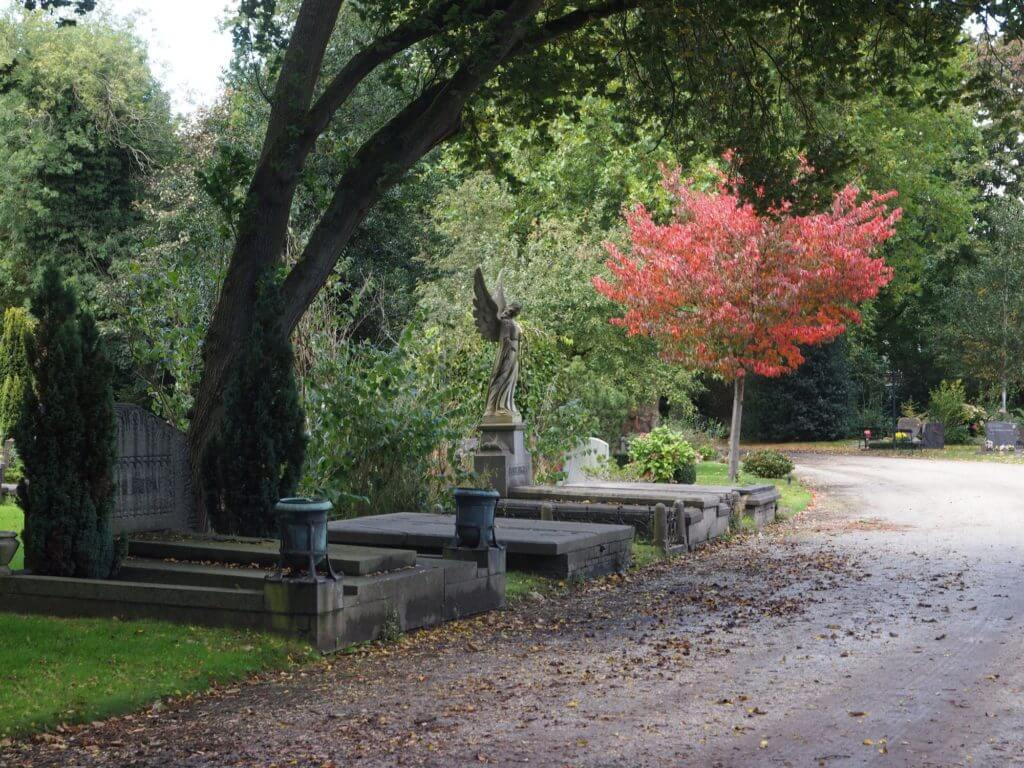The amount of time that passes between a death and the body being laid to rest depends on many factors, from personal preference to religion to availability.
In the UK it is common for funerals to take place a week or two after the deceased person passed away to give the family time to make all the necessary funeral arrangements. For information about how long funerals typically last for, follow this link.
How long after death is a funeral (cremation)?
If you are holding a cremation the date that you can hold the funeral is limited by the availability of the crematorium you have chosen. Lack of availability at the chosen crematorium is often the main reason why a funeral is delayed.
If you are prepared to cremate your loved one’s body without a ceremony, however, this will speed up the process. Many people who opt to cremate their loved ones perform the cremation quickly and simply, and then hold a funeral ceremony with the ashes of their loved one at a later date. This is an especially good option if you plan on burying the ashes of your loved one, or interring them in a columbarium, after cremation.
How long after death is a funeral (religious)?
Many religions stipulate how soon after death a practitioner of that faith should be buried.
It is common for Jewish and Islamic families to have the burial as soon as possible, due to a belief that the soul cannot ascend to heaven until the body has been reduced to dust.
Christian – including Catholic – families generally wait a little longer before burying a loved one, due to the elaborate vigils they hold. Nonetheless, the body is generally buried as soon as these rituals are complete.
How long does embalming last?
If (for religious reasons or just personal preference) you would like an open-casket funeral, but cannot arrange a funeral quickly, the body of your loved one can be embalmed in order to preserve it for longer.
Embalming involves the removal of all bodily fluids, which are replaced with a formaldehyde solution that can preserve the appearance of the body for a couple of weeks. Other measures to prevent decay, such as filling bodily orifices with cotton, are also taken.
However, even if the funeral does not take place until a few weeks after death, there is no obligation to embalm your loved one if you would prefer an eco-burial or if the deceased’s wishes or religion prohibit interference with their body after they pass away.
If you decide not to embalm your loved one, their body can be refrigerated at the funeral home for as long as necessary and then brought to the house for a showing on the day of the funeral. In such situations special considerations should be made in order to protect the body and keep it in a good condition for relatives to see.
Although bodies do not usually show visible signs of deterioration for a couple of days, it is advisable to wash your loved one and treat them with essential oils, such as lavender. Bodies can also be stored with dry ice, ice packs, a portable air conditioner or a specially-designed temperature control bed to keep them cool. Even after these precautions have been taken it is inadvisable to keep the body in this way for long.

